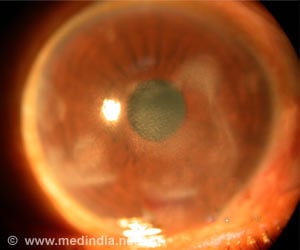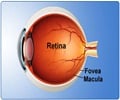Gene therapy in childhood blindness due to retinal eye disease currently produces only temporary benefit.

Two different studies havenow described the long-term follow-up of people with RPE65-associated LCA treated with gene therapy using sub-retinal injections of a virus designed to produce healthy RPE65.
The first study, conducted in the United States, comprised of three patients with RPE65-associated LCA who were given a single extrafoveal sub-retinal injection of gene therapy into one eye alone. The researchers observed that all three patients had improvement in visual sensitivity in the treated region. This effect peaked at one to three years after treatment. However, the visual sensitivity was found to have declined thereafter for up to five to six years after the treatment. The researchers noted that despite the initial improvement in the treated eye, the retinal degeneration continued at the same rate as in the untreated retina.
The second study, conducted in the United Kingdom, had enrolled 12 patients with RPE65-associated LCA and studied the effect of 2 doses of gene therapy. Researchers also performed a similar study in dogs with naturally occurring RPE65 deficiencies. The 12 patients were treated with similar gene therapy that relies on viral vectors as a means to deliver the necessary gene. Six of the 12 treated patients had modest improvements in visual sensitivities. This effect peaked at six to 12 months after the therapy. However, the visual sensitivity again declined or was lost within three or more years. Most of the improvements were noted in the high dose group.
Both the study findings suggest that without a highly efficient gene delivery system and sufficient surviving retinal pigment epithelium and photoreceptors, gene replacement treatment success for RPE65-associated LCA lasts only for a short time. Also, it may be possible to achieve stable and substantial restoration of vision as long as gene replacement was performed at an early stage in the disease.
Source-Medindia














